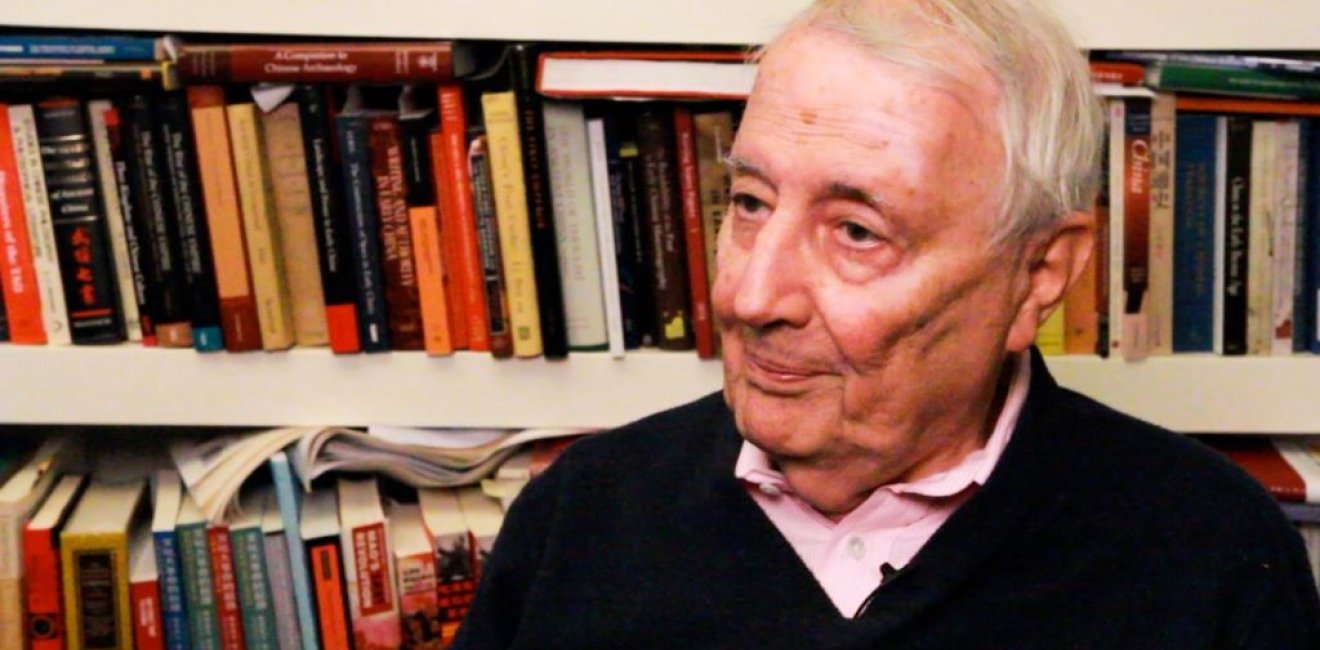 The Wilson Center mourns the loss of Professor Roderick MacFarquhar on February 10, 2019, and joins in celebrating the career of this great Anglo-American scholar. Professor MacFarquhar was a Wilson Fellow from 1980 to 1981, when he finished Volume Two of his classic study of The Origins of the Cultural Revolution: The Great Leap Forward, 1958-1960. He was a friend and inspiration to his Wilson Center colleagues and shaped the thinking of later generations of China scholars who came to Wilson Center only recently.
The Wilson Center mourns the loss of Professor Roderick MacFarquhar on February 10, 2019, and joins in celebrating the career of this great Anglo-American scholar. Professor MacFarquhar was a Wilson Fellow from 1980 to 1981, when he finished Volume Two of his classic study of The Origins of the Cultural Revolution: The Great Leap Forward, 1958-1960. He was a friend and inspiration to his Wilson Center colleagues and shaped the thinking of later generations of China scholars who came to Wilson Center only recently.
Kissinger Institute director Robert Daly recalls that, when he joined the Foreign Service in 1986, Professor MacFarquhar was known in the State Department as “Rod the God.” Current Wilson Fellow Felix Boecking notes that “interacting with Rod McFarquhar during my year as a postdoc was an unexpected but formative part of my time at Harvard. His kindness as well as his scholarship is an example for us all in the China field and beyond, and I am deeply grateful to have had the opportunity to meet him.” Below are a few tributes from Wilson Center colleagues.
Stapleton Roy, Founding Director and Distinguished Scholar of the Kissinger Institute
Rod MacFarquhar has been an admired friend and inspiration for me since I first met him some sixty years ago when he was working as a journalist and visited his parents in Bangkok, where I was serving at the time. I can still remember our lively discussion about China, a topic on which his meticulous scholarship later contributed so much to our understanding of the often opaque developments in Mao's China. Our paths crossed from time to time in subsequent years, and our conversations were always stimulating and informative. His death is a great loss for his many friends.
Samuel Wells, Former Deputy and Associate Director of the Wilson Center and Senior Scholar
Rod was a pragmatic scholar who became an expert on the new Chinese Communist government as a means to win a position on a top newspaper. A term as a member of the British Parliament sharpened his political instincts, and he concentrated his China writing on the elite factional fighting within the Communist Party. This produced the classic trilogy on the Cultural Revolution, the second volume of which was written mainly at the Center. He soon joined the faculty of Harvard University where he remained as a leading scholar and popular professor for the remainder of his career.
Felix Boecking, Wilson Center Fellow 2018-2019
Interacting with Rod MacFarquhar during my year as an An Wang Postdoc was an unexpected but formative part of my time at Harvard, 2010-2011. A scholar of stellar accomplishments, with never-ending demands on his attention, he took the time to be kind and encouraging to a star-struck postdoc like myself. I remember two conversations especially—was I writing as I was conducting my research, or did I think I could do the research first and then turn a pile of notes into a book? He always wrote as he went along, he said (and that explains his phenomenal productivity). Firm advice, given in a characteristically elegant way, which I have tried to heed since. A few months later, we were discussing a long and generous review which Rod had written of a recent book by a senior scholar in our field. He said that he didn’t do much reviewing any more, but that this was an important book, and that he had agreed to do the review because the boldness of its argument might have set other reviewers’ teeth on edge. Rod MacFarquhar’s kindness as well as his scholarship is an example for us all in the China field and beyond, and I am deeply grateful to have had the opportunity to meet him.






